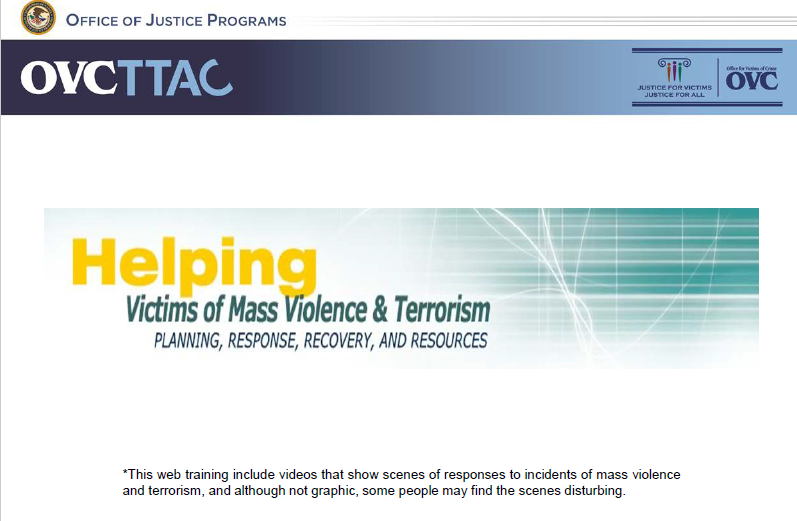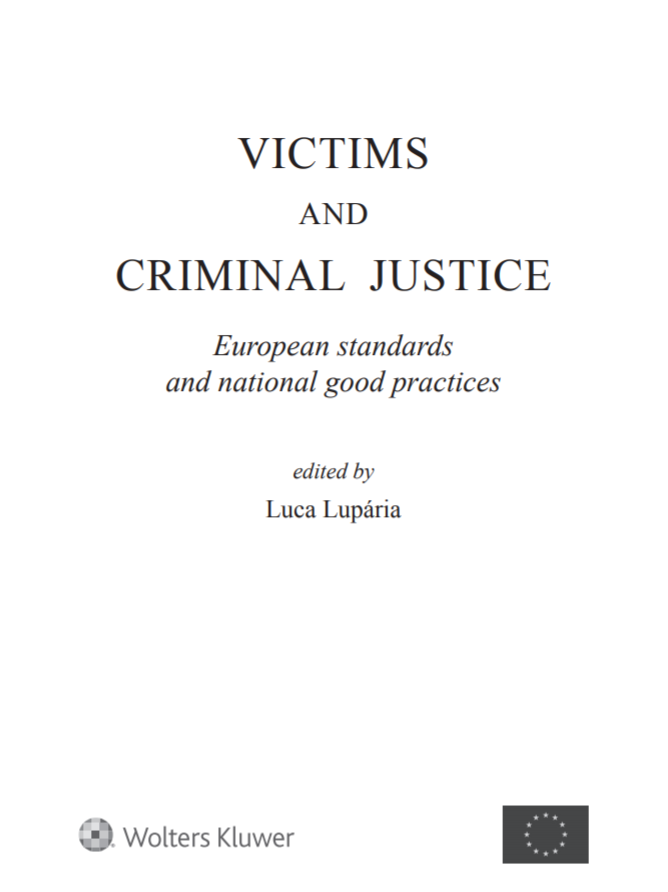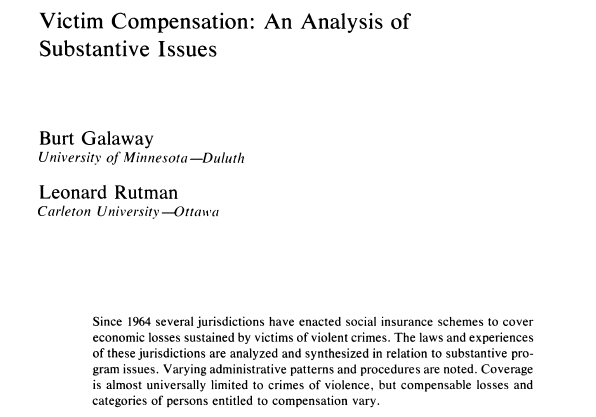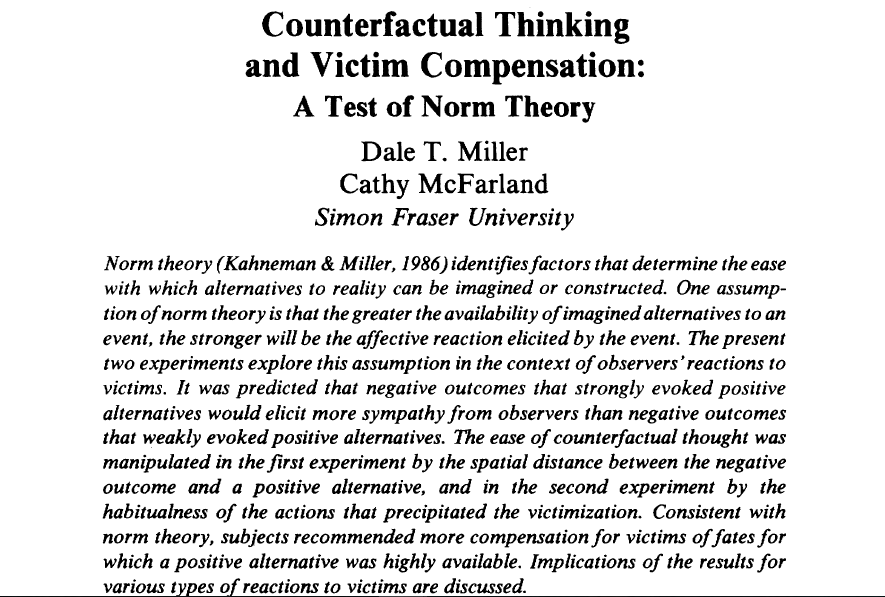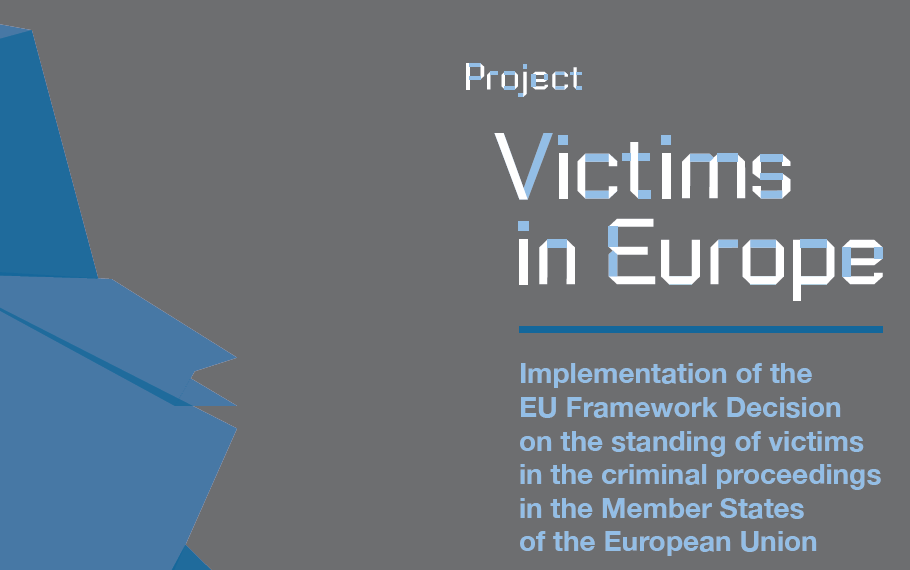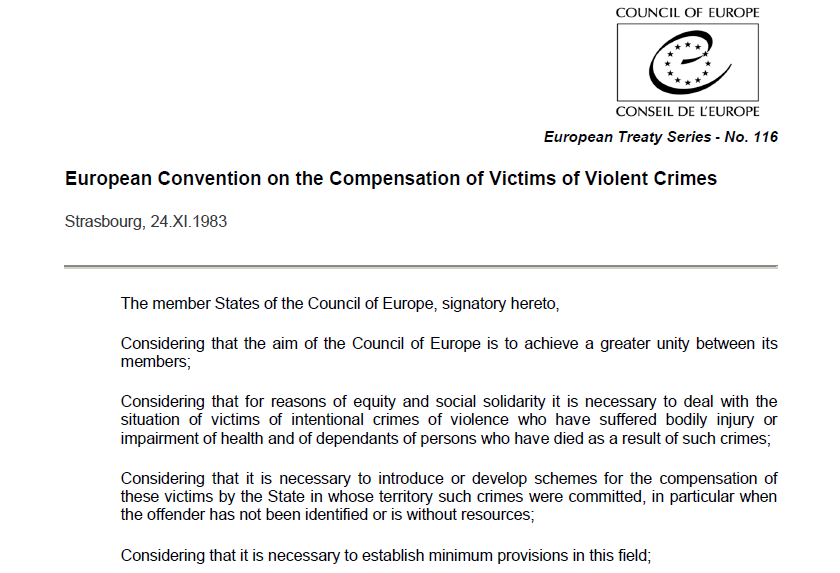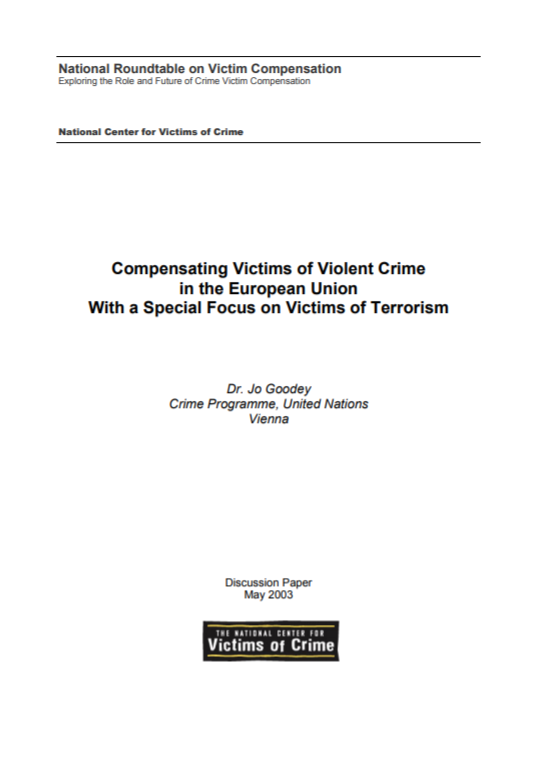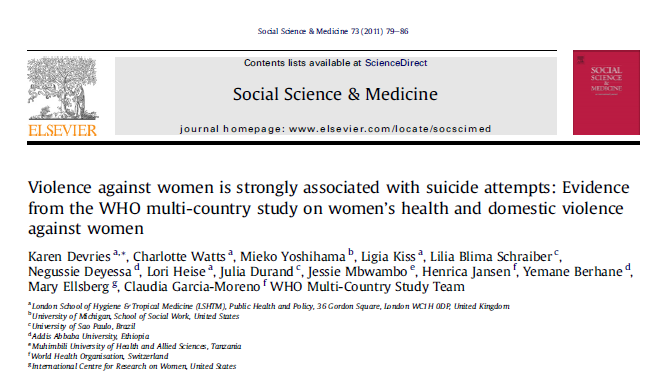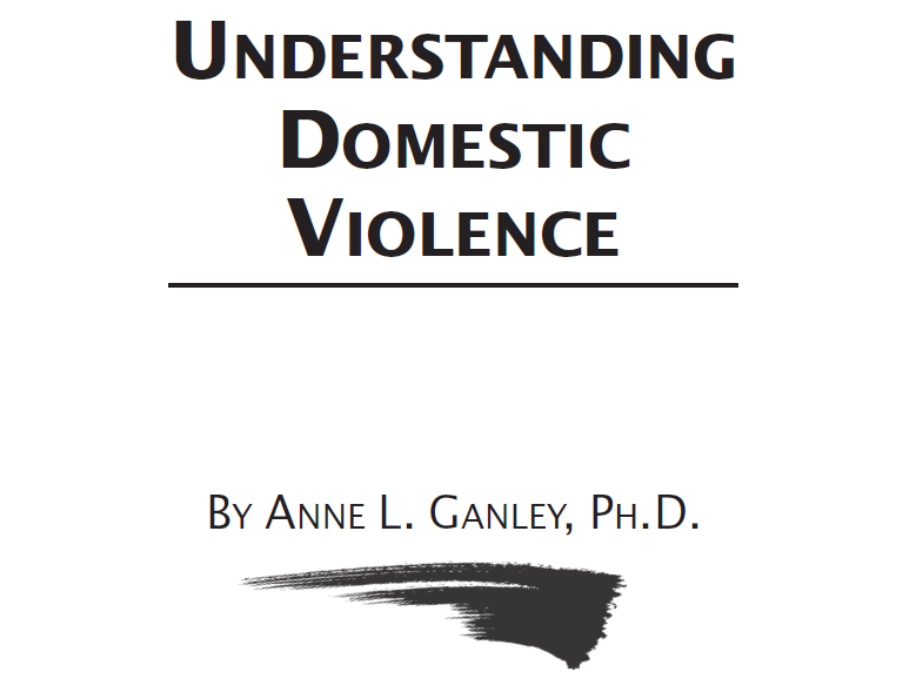For a quick search in the Knowledge database below, please use the search box. Also, note that using one or more of the dropdown filters will optimise your search.
Watch this video to find out more about our Knowledge Database and the publications we have collected here for you: video
Knowledge Database
-
Helping Victims of Mass Violence and Terrorism
US Department of Justice | Published in 2016
This presentation explains the US procedures in place to help victims of mass violence and terrorism.
Keywords: mass fatality, prevention, terrorism, victim services -
Victims and Criminal Justice: European Standards and National Good Practices
Luca Lupária | Published in 2015
This work represents one of the main scientific results of the project entitled "Good practices for protecting victims inside and outside the criminal process", funded by the European Commission within the scope of the Criminal Justice program (Just/2011/JPEN/AG/2901).
Keywords: compensation, victim services -
Victim Compensation: An Analysis of Substantive Issues
Burt Galaway, Leonard Rutman | Published in 1974
Since 1964 several jurisdictions have enacted social insurance schemes to cover economic losses sustained by victims of violent crimes. The laws and experiences of these jurisdictions are analyzed and synthesized in relation to substantive program issues. Varying administrative patterns and procedures are noted. Coverage is almost universally limited to crimes of violence, but compensable losses and categories of persons entitled to compensation
Keywords: compensation -
Counterfactual Thinking and Victim Compensation: A Test of Norm Theory
Dale T. Miller, Cathy McFarland | Published in 1986
Norm theory (Kahneman & Miller, 1986) identifies factors that determine the ease with which alternatives to reality can be imagined or constructed. One assumption of norm theory is that the greater the availability of imagined alternatives to an event, the stronger will be the affective reaction elicited by the event. The present two experiments explore this assumption in the context of observers' reactions to victims. It was predicted that negative outcomes that strongly evoked positive alternatives would elicit more sympathy from observers than negative outcomes that weakly evoked positive alternatives. The ease of counterfactual thought was manipulated in the first experiment by the spatial distance between the negative outcome and a positive alternative, and in the second experiment by the habitualness of the actions that precipitated the victimization. Consistent with norm theory, subjects recommended more compensation for victims of fates for which a positive alternative was highly available. Implications of the results for various types of reactions to victims are discussed.
Keywords: compensation -
Project Victims in Europe
APAV, VSE | Published in 2009
Implementation of the EU Framework Decision on the standing of victims in the criminal proceedings in the Member States of the European Union
Keywords: compensation, victim services -
European Convention on the Compensation of Victims of Violent Crimes
Council of Europe | Published in 1983
Keywords: compensation -
Compensating Victims of Violent Crime in the European Union With a Special Focus on Victims of Terrorism
Dr. Jo Goodey | Published in 2003
In this paper, the philosophical underpinnings of State compensation to victims of violent crime are explored in the context of the EU. State compensation is examined alongside offender-based compensation in an effort to understand the “place” of State initiatives in different legal systems. As a starting point, international instruments are referred to as providing benchmark standards for victim compensation, and, at the same time, are limited in what they afford victims as a “right.” In outlining provision for victim compensation in the EU, the paper points to similarities and differences between Member States. Given this roundtable’s focus on victim compensation in the aftermath of September 11, special reference is made towards the end of the paper to EU provisions for compensating victims of terrorist violence.
Keywords: compensation -
Claiming Compensation in the EU Countries
This brochure by the Criminal Injuries Compensation Authority in the UK provides clear guidelines and information about claiming compensation if you have been the victim of a violent crime in another country in the EU, but are a resident of the UK.
Keywords: compensation, victim services -
Violence against women is strongly associated with suicide attempts
WHO | Published in 2011
Suicidal behaviours are one of the most important contributors to the global burden of disease among women, but little is known about prevalence and modifiable risk factors in low and middle income countries. We use data from the WHO multi-country study on women’s health and domestic violence against women to examine the prevalence of suicidal thoughts and attempts, and relationships between suicide attempts and mental health status, child sexual abuse, partner violence and other variables. Population representative cross-sectional household surveys were conducted from 2000-2003 in 13 provincial (more rural) and city (urban) sites in Brazil, Ethiopia, Japan, Namibia, Peru, Samoa, Serbia, Thailand and Tanzania. 20967 women aged 15-49 years participated. Prevalence of lifetime suicide attempts, lifetime suicidal thoughts, and suicidal thoughts in the past four weeks were calculated, and multivariate logistic regression models were fit to examine factors associated with suicide attempts in each site. Prevalence of lifetime suicide attempts ranged from 0.8% (Tanzania) to 12.0% (Peru city); lifetime thoughts of suicide from 7.2% (Tanzania province) to 29.0% (Peru province), and thoughts in the past four weeks from 1.9% (Serbia) to 13.6% (Peru province). 25-50% of women with suicidal thoughts in the past four weeks had also visited a health worker in that time. The most consistent risk factors for suicide attempts after adjusting for probable common mental health disorders were: intimate partner violence, non-partner physical violence, ever being divorced, separated or widowed, childhood sexual abuse and having a mother who had experienced intimate partner violence. Mental health policies and services must recognise the consistent relationship between violence and suicidality in women in low and middle income countries. Training health sector workers to recognize and respond to the consequences of violence may substantially reduce the health burden associated with suicidal behaviour.
Keywords: domestic violence -
Understanding Domestic Violence
Domestic violence is a problem of epidemic proportions with far-reaching consequences for individual victims, their children and their communities. Domestic violence results in death, serious injury, and chronic medical and mental health issues for victims, their children, the perpetrators, and others. The lethal outcome of domestic violence is tragically evident in media reports that describe a steady stream of homicides against victims, their children, family or friends, those who are trying to protect them, innocent bystanders, and perpetrators. Discussing what is known about homicides and suicides is only one way to understand the lethal nature of domestic violence.
Keywords: domestic violence
